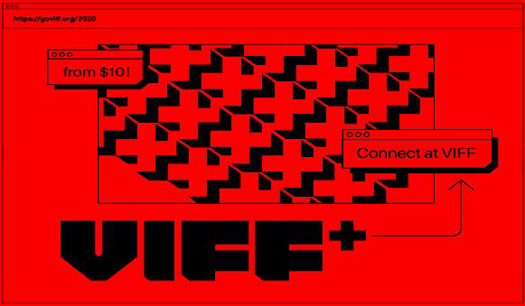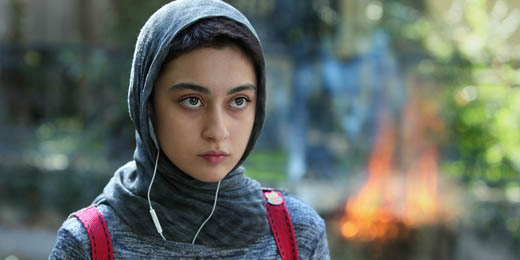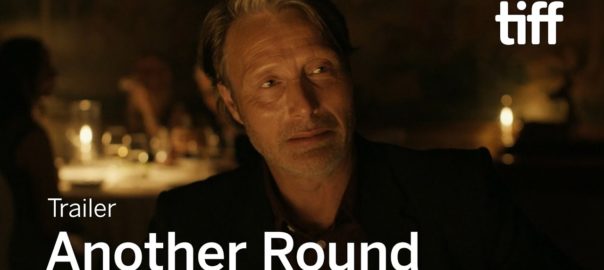
One hundred plus award-winning films in 14 days, what’s a person to do?
Today, the first instalment of VanRamblings’ informed insight, into three films set to find their way onto your home screen through VIFF Connect, the celebration of the best in homegrown and international cinema, that will commence just a week this Thursday, on September 24th.
Another Round (Denmark). The Danish title is Druk, a term which is maybe best translated by adding the letter N before the one at the end.
Originally slated to play at Cannes this year, and currently screening at the Toronto International Film Festival, director Thomas Vinterberg reteams with his The Hunt star, the always engaging Mads Mikkelsen, for a darkly comic referendum on intoxication. Compelling, and more than a little sobering, Vinterberg takes aim at his home country’s drinking culture, in a film that resonates far beyond Denmark’s shores. Mikkelsen plays a high-school teacher beginning a reckless experiment with alcohol, in this tragicomic and bittersweet portrait of midlife crisis and alcohol abuse.
Another Round is sweeter, lighter and more conventional than most of Vinterberg’s past work, eschewing the bleak social commentary that underscored films like The Celebration, Submarino and The Hunt. Even so, it makes for an appealing ensemble piece, as well as a great vehicle for Mikkelsen’s vulpine beauty and nimble dance moves. For anyone who has ever craved seeing this former gymnast doing his finest Gene Kelly impersonation to pounding Europop, your dream movie has finally arrived.
Capturing the gleeful, anarchic euphoria of being merrily drunk in the company of good friends, Another Round — although it doesn’t have much profound to say about intoxication and addiction — does offer an engaging tribute to friendship, family and bacchanalian hedonism in moderation.
The Forum (Germany/Switzerland). In his latest documentary, German filmmaker Marcus Vetter takes a look behind the scenes of the World Economic Forum in Davos. As the first independent film director to get such access, Vetter’s fascinating documentary gives rare behind-the-scenes access to the World Economic Forum. Providing an admirably balanced deep dive into the organization that brings together the elite from the worlds of politics, big business and beyond is something to be celebrated, and more than justifies its near two-hour running time.
At the heart of the film is Professor Klaus Schwab, the 81-year-old whose brainchild the WEF was and who displays such incredible diplomatic skills that you wonder what he might have achieved as a head of a country. His aim is to further social cohesion across the globe by creating dialogue between those who might not otherwise listen to one another. There are plenty who are skeptical about how successful the WEF has been at improving the world, however, and they are given a voice here too. That includes Greenpeace International’s executive director Jennifer Morgan, who talks about the “mega group-think” of elites that is “99 per cent status quo” rather than a movement for change. (Screen Daily)
One attendee who insists Schwab, not to mention the 3,000 global figures he gathers annually, must do more, is Greta Thunberg. The young climate activist from Sweden attends with her father and is regarded unseriously as a quaint novelty by many of the other participants until her stark address hits home. “It feels like I’m at a firefighters’ conference, and no-one is allowed to speak about water,” she says of the hypocrisy of a conference that prizes success stories but is unwilling to admit their terrible price.
The final part of the film is focused on the 2019 Davos event, which is very different from the previous one. This time around, there is no May, Trump nor Macron; instead, Bolsonaro and Thunberg are there, and an exchange between the Brazilian president and Al Gore is surely one of the most priceless moments in documentary cinema captured in recent years.
Yalda, A Night for Forgiveness (Iran). Grand Jury Prize winner in the World Dramatic Competition at the Sundance Film Festival this year, filmmaker Massoud Bakhshi (A Respectable Family), who wrote and directed this suspenseful exposé of Sharia law, tells the story of a young woman convicted of murder who goes on Iranian TV to try to win a pardon.
The way religious law penetrates every aspect of Iranian life, from a murder case to how a TV show is run, is probably the most striking aspect of the film. The perverse logic of temporary marriage, inheritance laws favouring boys and homicide laws stacked against wives, not to mention the practice of paying one’s way out of a hanging with “blood money” to the victim’s relatives, become casual plot elements in Bakhshi’s well-shot melodrama.
As the story of the “murder” comes out, one outrageous fact follows another. To begin with, the wealthy husband Nasser Zia was 65 and married when he decided to implore innocent young Maryam, his driver’s daughter, convincing her he loved her and getting her to agree to the infamous practice of “temporary marriage,” which avoids sin along with permanent commitment, although not Maryam’s pregnancy, causing the two to fight, resulting fatefully in Zia’s death, for which Maryam is held accountable.
Grippingly paced, opulently shot in muted colour by cinematographer Julian Atanassov, with precise and always fluid editing by Jacques Comets, the film’s bold method of addressing themes of maternal sacrifice, and what determines both legal and religious rights in a country where the Western concept of feminism is inherently offensive, Yalda is timely and terrifying film fare, available only at the 39th Vancouver International Film Festival.
![]()
![]()
![]()

Click here for VanRamblings’ introductory coverage to western Canada’s gloriously west coast, this year largely virtual edition, of our homegrown and keenly spectacular 39th annual Vancouver International Film Festival.
